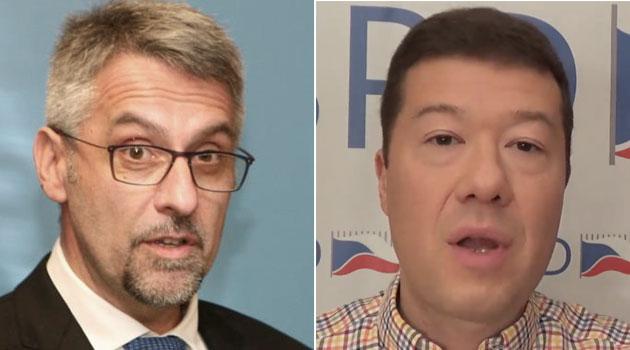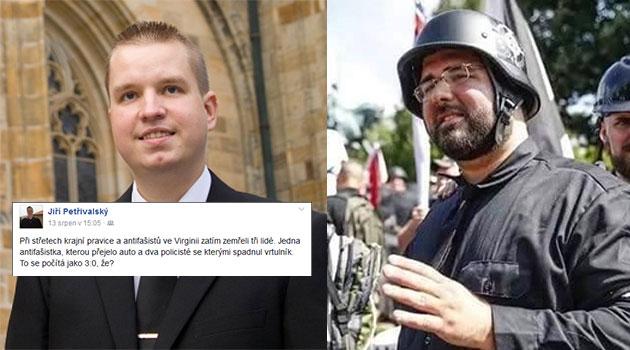Czech MP spreads disinformation about terrorist threat, Interior Minister sharply objects

Czech Interior Minister Lubomír Metnar has very emphatically objected to recent allegations made by SPD leader Tomio Okamura. That MP has published a disinformation video in which he claims the Czech Republic is in danger of terrorist attack.
“That statement contains several serious pieces of disinformation concerning the internal security of the Czech Republic,” the minister said on 29 December 2017. Okamura published the video on 27 December 2017 to the Facebook page of the SPD.
“Security in the Czech Republic has deteriorated again and there is a threat of terrorist attacks,” the MP alleges in the video, without providing any evidence. “This is the sad result of the fifth year of the engagement of Andrej Babiš in the Government. Now the situation has deteriorated further. On the Old Town Square in Prague concrete barriers have newly appeared to prevent a terrorist attack.”
In addition to its other claims, the statement contains a factual error. Babiš has not been in the Government for five years, but for less than four.
Metnar has sharply objected to the allegations made by Okamura, who now occupies one of the highest constitutional offices in the country as Vice-Chair of the Chamber of Deputies of the Parliament of the Czech Republic. In a statement that news server Romea.cz is publishing below in full translation, the minister said that “The Czech Republic remains one of the safest countries in the world and, according to objective security parameters, its security situation is not deteriorating.”
Czech Interior Minister’s response to Tomio Okamura’s remarks of 27 December 2017
On 27 December 2017, Tomio Okamura published a video to the SPD’s pages declaring that the Czech Republic is in danger of terrorist attack. The statement contains several serious pieces of disinformation concerning the security situation of the Czech Republic.
The Czech Republic remains one of the safest countries in the world and, according to objective security parameters, its security situation is not deteriorating. It is still the case that the lowest degree of terrorist threat, level one, applies here.
That threat assessment clearly flows from the evaluation done by the body that is called upon in the Czech Republic to comprehensively judge the degree of terrorist threat, i.e., the Joint Intelligence Group. Nobody else has been tasked with making that assessment, and nobody else has enough information to be able to perform the relevant evaluation of the degree to which the Czech Republic is at risk of terrorism.
The mechanical barriers are a response to what has recently become a frequent attack method, that of driving vehicles into crowds, and are not an indication of the existence of any concrete information from which it would follow that there is an increased danger of terrorist attacks in the Czech Republic. There are no security measures that, in and of themselves, will prevent any and all attack methods.
It would, however, given the current situation in Europe, be foolish not to take advantage of opportunities to at least somewhat increase the protections afforded to selected soft targets. It is necessary to comprehend that any individual measures are just one component of an entire battery of measures applied in the Czech Republic against terrorism (measures that are hidden from view as well as ones that are visible).
The Czech Republic already currently thoroughly prosecutes any illegal migration onto its territory. The Czech state has zero tolerance for illegal migration.
